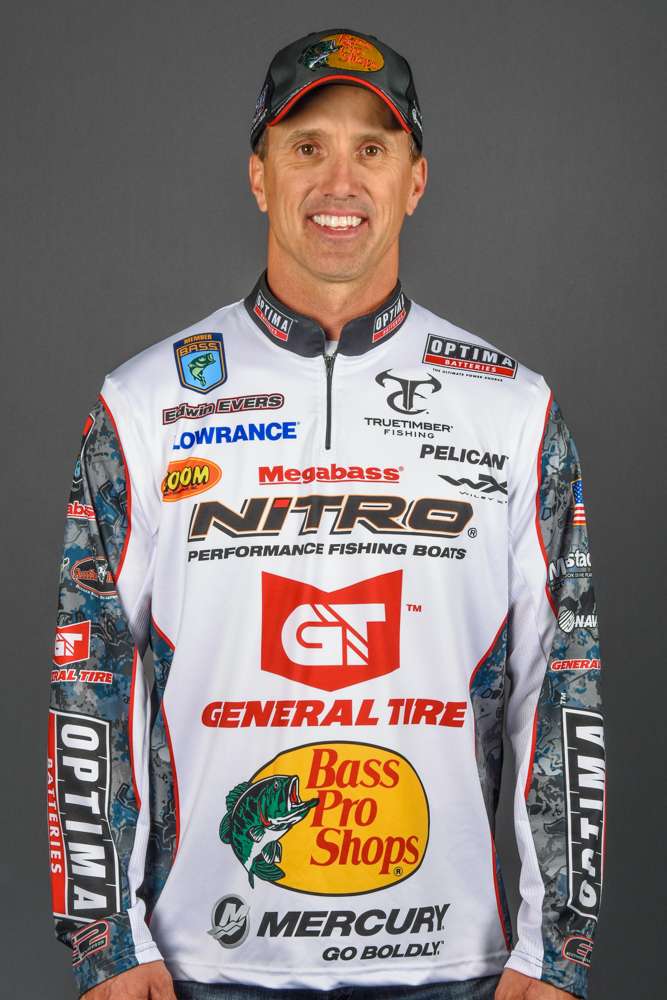I am not a weatherman … and I don’t play one on TV, but when I’m practicing for a tournament and trying to put together a successful game plan for the event, I often find myself looking at the weather forecast and trying to figure out just what the bass will be doing once the tournament starts.
This week’s Bassmaster Elite Series event on Lake Dardanelle is a classic example. During our practice period (Monday through Wednesday), the forecast calls for rain and high temperatures between 80 and 90. Then, on Thursday when the tournament starts, it shifts to mostly sunny with highs that are 15 to 20 degrees cooler.
That’s a big difference in weather, and the shift is scheduled to happen just as we transition from practice to competition.
Weather changes like that — even those with such perfectly bad timing — don’t make practice worthless, but they do change the way tournament anglers have to approach practice and the first part of competition.
My preparation for this tournament began months ago when I started looking at past events on Dardanelle, most particularly the 2005 Bassmaster Elite 50 tournament won by Davy Hite; it was held at about the same time of year. Those previous events can give me an idea of what weights to expect, and I can compare the weather, water levels and flow rates to get a picture of how similar the conditions might be. I also look back at any notes I made of the events I fished, where I fished and how I did.
Since we’re going to have warm, cloudy and rainy weather during practice this week, I’m expecting the fishing to be great. But with a cold front coming through in the middle of the week, things could be much tougher once the tournament starts. Weekend anglers face this sort of thing all the time and rarely have the opportunity to get updated information after the weather change.
The key, of course, is to figure out where the fish will be after the front passes through and what they’ll bite. Buzzbaits, spinnerbaits and wake baits might be great in practice, but I doubt they’ll be much of a factor once competition begins.
When you’re really catching them in practice, it’s tough not to go right back out there and try the same things in the same places once the tournament begins even though conditions have changed.
In fact, if you’ve been tearing them up in one area on power fishing baits, I think it’s a mistake not to get right back out there and see if you can still catch them that way. You just can’t afford to be stubborn. I know that if I’m on good fish in practice that are hitting a buzzbait in shallow water, that’s where I’ll be and what I’ll be throwing first thing in the morning when competition begins. You have to try it, right?
The real mistake comes when you stick with yesterday’s pattern too long. When you know conditions have changed, you have to drop what worked yesterday very quickly and move on to what you think is going to work today. It takes discipline, but it’s also what separates the best tournament anglers from the rest of the pack. When you stick with the wrong thing too long, you give your competition a head start. At the Elite level, I can’t afford to do that.
Where it really gets tough is when you go out there and throw that buzzbait early in the morning on the first day after the front when competition begins and you get a bite or two because the light’s low and conditions are still somewhat favorable. Soon it’s 8:00 or 8:30 and the sun’s on the water and the bite has slowed or died, but you’re still out there throwing that buzzbait. You can’t let those couple of early bites convince you to stick with it all day when you know — or should know — that it’s over.
Instead, you need to spend your practice finding numbers of quality fish and catching a few to get a feel for where and how big they are, but focus your efforts on figuring out where they’ll be when conditions change — when the temperature drops, when the sun comes out, when the wind stops blowing.
Will you need to pull out your flippin’ rod and look for heavy cover or will the bass pull out a little deeper? Generally, under those kinds of conditions, I know that I’ll probably have to go pick apart the cover by flippin’ or change my retrieve (usually to ultra-fast) to trigger some reaction strikes from bass that have become at least a little lethargic.
Remember: Practice is about coming up with a plan for catching the bass in competition — not before. You don’t want to be the guy who “wins” practice.
Finally, are we Facebook friends? If we are, thank you. If not, I hope you’ll “friend” me there so you can enter my contest for the Dardanelle tournament. I’m giving away a $50 Bass Pro Shops gift card to whoever can correctly guess my first day’s weight (Thursday). The tiebreaker is to guess my place in the standings after the first day, so you’ll need to put both numbers in your post — weight and place.
You can follow all the action right here on Bassmaster.com.





